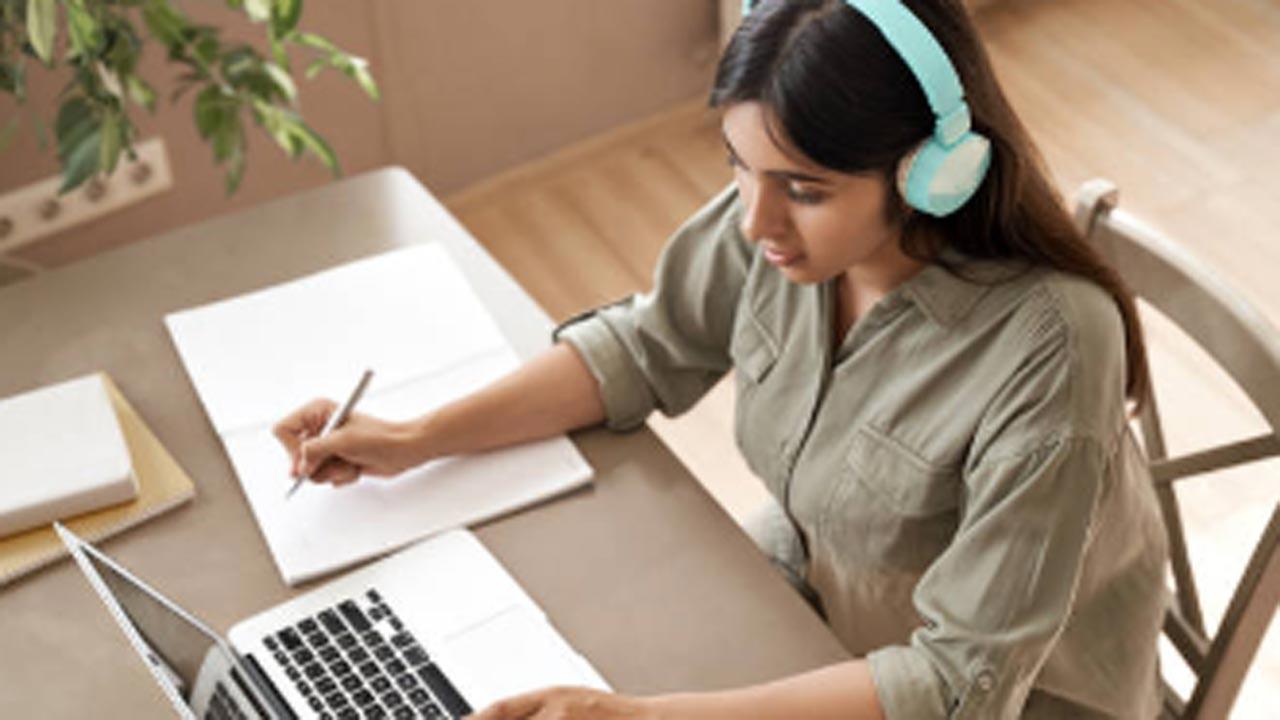Creative people are more likely to fruitfully use idle time by letting one idea lead to another. During the COVID-19 pandemic, a time when the world experienced unusually extended periods of unstructured time, creative people were less bored and more engaged with their thoughts

Image for representational purposes only. Photo Courtesy: iStock
According to a new study by University of Arizona researchers, creative people are more prone to spend their downtime during the day exploring their minds.
The study, published in the Creativity Research Journal, finds that creative people are more likely to fruitfully use idle time by letting one idea lead to another. Study participants who were more creative felt less bored when they sat alone in a room, researchers found. And during the COVID-19 pandemic, a time when the world experienced unusually extended periods of unstructured time, creative people were less bored and more engaged with their thoughts.
"I am particularly interested in creativity because we wanted to know what's going on in the mind of creative individuals, especially in situations where nothing constrains their thoughts," said lead study author Quentin Raffaeli, a graduate student in the UArizona Department of Psychology.
In psychology and neuroscience, most studies on human thoughts either prompt participants to think in a certain way or ask them to report on thoughts they experienced, but less is known about how thoughts naturally arise and unfold over time in unprompted contexts, said Jessica Andrews-Hanna, an associate professor in the Department of Psychology and senior author of the paper.
"This is where our study comes in," Andrews-Hanna said.
History is filled with anecdotes of famous scientists, artists and philosophers who enjoyed being alone with their thoughts, and those people often generated some of their best ideas during idle time, Andrews-Hanna said.
"In today's busy and digitally connected society, time to be alone with one's thoughts without distraction may be becoming a rare commodity," she added.
The researchers divided the study into two parts. For the first experiment, the researchers asked each participant to sit alone in a room for 10 minutes without any access to digital devices. In the absence of any particular prompt, the participants were asked to voice their thoughts aloud in real time. The recorded files from 81 participants were then transcribed and analyzed.
The researchers assessed the participants' creativity through a "divergent thinking test," a lab-based verbal test that measures a person's ability to think outside of the box. Participants who performed well in the divergent thinking test had thoughts that flowed freely and were associated with one another, often indicated by phrases such as "this reminds me of" or "speaking of which."
"While many participants had a tendency to jump between seemingly unrelated thoughts, creative individuals showed signs of thinking more associatively," Raffaeli said.
The first experiment also found that creative people were more engaged in their thoughts when they were left alone without distractions, such as cell phone and internet.
"Creative people rated themselves as being less bored, even over those 10 minutes. They also spoke more words overall, which indicated that their thoughts were more likely to move freely," Andrews-Hanna said.
To complement their initial findings, the researchers extended their study in the context of a much larger span of time - the COVID-19 pandemic -when many people were alone with their thoughts more often.
For the second experiment, over 2,600 adults answered questions through a smartphone app called Mind Window, developed by Andrews-Hanna and her graduate student Eric Andrews. Participants who self-identified as being creative reported being less bored during the pandemic.
"As we become more overworked, overscheduled and addicted to our digital devices, I think we need to do a better job in our homes, our workplaces and our schools to cultivate time to simply relax with our thoughts," Andrews-Hanna said.
The researchers are continuing this line of work using their Mind Window app. They encourage people to download and use the app to help scientists understand how people across the world think in their everyday lives.
"Understanding why different people think the way they do may lead to promising interventions to improve health and well-being," Andrews-Hanna said.
Also Read: Taking painkillers frequently? Expert highlights alarming health risks
This story has been sourced from a third party syndicated feed, agencies. Mid-day accepts no responsibility or liability for its dependability, trustworthiness, reliability and data of the text. Mid-day management/mid-day.com reserves the sole right to alter, delete or remove (without notice) the content in its absolute discretion for any reason whatsoever
 Subscribe today by clicking the link and stay updated with the latest news!" Click here!
Subscribe today by clicking the link and stay updated with the latest news!" Click here!








